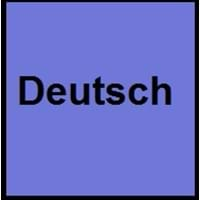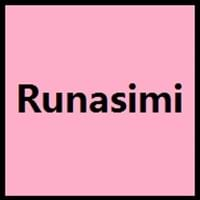Countries
Austria, Belgium, Germany, Italy, Liechtenstein, Luxembourg, Switzerland
Argentina, Bolivia, Chile, Colombia, Ecuador, Peru
National Language
Germany
Bolivia, Ecuador, Peru
Second Language
North Dakota, United States of America
Not spoken in any of the countries
Speaking Continents
Europe
South America
Minority Language
Czech Republic, Denmark, Former Soviet Union, France, Hungary, Italy, Namibia, Poland, Romania, Slovakia, Slovenia
Not spoken in any of the countries
Regulated By
Council for German Orthography
Not Available
Interesting Facts
- One of the large group of Indo-Germanic languages is German.
- The second most popular Germanic language spoken today behind English is German language.
- One of the most widely spoken indigenous language in the America is Quechua.
- Quechua language has borrowed many words from Spanish.
Similar To
Dutch, Danish, Norwegian, Swedish and English Languages
Not Available
Derived From
Albanian Languages
Not Available
Alphabets in
German-Alphabets.jpg#200
Quechua-Alphabets.jpg#200
Writing Direction
Left-To-Right, Horizontal
Not Available
Language Levels
Not Available
Hello
hallo
Rimaykullayki
How Are You?
Wie geht es dir?
Allillanchu
Good Night
gute Nacht
Allin tuta
Good Evening
guten Abend
Wuynas nuchis
Good Afternoon
guten Tag
Wuynas tardis
Good Morning
guten Morgen
Wuynus diyas
Please
bitte
Not Available
Sorry
Verzeihung
Pampachaykuway
I Love You
Ich liebe dich
Kuyayki
Excuse Me
Entschuldigung
Pampachaway
Dialect 1
Swiss German
Ancash
Where They Speak
Switzerland
Peru
Dialect 2
Swabian German
Huánuco
Where They Speak
Germany
Peru
Dialect 3
Texas German
Yaru
Where They Speak
Texas
Peru
Second Language Speakers
Not Available
Native Name
Deutsch
Qhichwa
Alternative Names
Deutsch, Tedesco
North La Paz Quechua
French Name
allemand
quechua
German Name
Deutsch
Quechua-Sprache
Pronunciation
[ˈdɔʏtʃ]
Not Available
Ethnicity
Germans
Quechua
Origin
6th Century AD
16th Century
Language Family
Indo-European Family
Quechumaran Family
Subgroup
Germanic
Andean Equatorial
Branch
Western
Not Available
Early Forms
No early forms
No early forms
Standard Forms
German Standard German, Swiss Standard German and Austrian Standard German
Quechua
Language Position
Not Available
Signed Forms
Signed German
Not Available
Scope
Individual
Macrolanguage
ISO 639 6
deus
Not Available
Glottocode
high1287, uppe1397
quec1387
Linguasphere
52-ACB–dl & -dm
No data Available
Language Type
Living
Living
Language Linguistic Typology
Subject-Object-Verb, Subject-Verb-Object
Not Available
Language Morphological Typology
Fusional, Synthetic
Agglutinative, Synthetic
All German and Quechua Dialects
Most languages have dialects where each dialect differ from other dialect with respect to grammar and vocabulary. Here you will get to know all German and Quechua dialects. Various dialects of German and Quechua language differ in their pronunciations and words. Dialects of German are spoken in different German Speaking Countries whereas Quechua Dialects are spoken in different Quechua speaking countries. Also the number of people speaking German vs Quechua Dialects varies from few thousands to many millions. Some of the German dialects include: Swiss German, Swabian German. Quechua dialects include: Ancash , Huánuco. Also learn about dialects in South American Languages and North American Languages.
German and Quechua Speaking population
German and Quechua speaking population is one of the factors based on which German and Quechua languages can be compared. The total count of German and Quechua Speaking population in percentage is also given. The percentage of people speaking German language is 1.39 % whereas the percentage of people speaking Quechua language is 0.13 %. When we compare the speaking population of any two languages we get to know which of two languages is more popular. Find more details about how many people speak German and Quechua on German vs Quechua where you will get native speakers, speaking population in percentage and native names.
German and Quechua Language Codes
German and Quechua language codes are used in those applications where using language names are tedious. German and Quechua Language Codes include all the international language codes, glottocodes and linguasphere.





